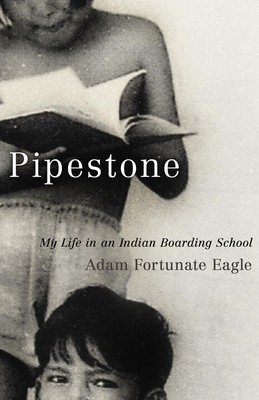
- We will send in 10–14 business days.
- Author: Adam Fortunate Eagle
- Publisher: University of Oklahoma Press
- ISBN-10: 080614114X
- ISBN-13: 9780806141145
- Format: 17.4 x 22 x 1.8 cm, softcover
- Language: English
- SAVE -10% with code: EXTRA
Reviews
Description
A renowned activist recalls his childhood years in an Indian boarding school
Best known as a leader of the Indian takeover of Alcatraz Island in 1969, Adam Fortunate Eagle now offers an unforgettable memoir of his years as a young student at Pipestone Indian Boarding School in Minnesota. In this rare firsthand account, Fortunate Eagle lives up to his reputation as a "contrary warrior" by disproving the popular view of Indian boarding schools as bleak and prisonlike.
Fortunate Eagle attended Pipestone between 1935 and 1945, just as Commissioner of Indian Affairs John Collier's pluralist vision was reshaping the federal boarding school system to promote greater respect for Native cultures and traditions. But this book is hardly a dry history of the late boarding school era. Telling this story in the voice of his younger self, the author takes us on a delightful journey into his childhood and the inner world of the boarding school. Along the way, he shares anecdotes of dormitory culture, student pranks, and warrior games. Although Fortunate Eagle recognizes Pipestone's shortcomings, he describes his time there as nothing less than "a little bit of heaven."
Were all Indian boarding schools the dispiriting places that history has suggested? This book allows readers to decide for themselves.
EXTRA 10 % discount with code: EXTRA
The promotion ends in 13d.22:49:34
The discount code is valid when purchasing from 10 €. Discounts do not stack.
- Author: Adam Fortunate Eagle
- Publisher: University of Oklahoma Press
- ISBN-10: 080614114X
- ISBN-13: 9780806141145
- Format: 17.4 x 22 x 1.8 cm, softcover
- Language: English English
A renowned activist recalls his childhood years in an Indian boarding school
Best known as a leader of the Indian takeover of Alcatraz Island in 1969, Adam Fortunate Eagle now offers an unforgettable memoir of his years as a young student at Pipestone Indian Boarding School in Minnesota. In this rare firsthand account, Fortunate Eagle lives up to his reputation as a "contrary warrior" by disproving the popular view of Indian boarding schools as bleak and prisonlike.
Fortunate Eagle attended Pipestone between 1935 and 1945, just as Commissioner of Indian Affairs John Collier's pluralist vision was reshaping the federal boarding school system to promote greater respect for Native cultures and traditions. But this book is hardly a dry history of the late boarding school era. Telling this story in the voice of his younger self, the author takes us on a delightful journey into his childhood and the inner world of the boarding school. Along the way, he shares anecdotes of dormitory culture, student pranks, and warrior games. Although Fortunate Eagle recognizes Pipestone's shortcomings, he describes his time there as nothing less than "a little bit of heaven."
Were all Indian boarding schools the dispiriting places that history has suggested? This book allows readers to decide for themselves.


Reviews